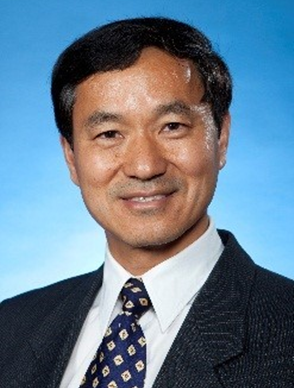Prof. Xiaoqi Chen
South China University of Technology, China
Biography: Professor Xiaoqi Chen is a nationally recruited high-level overseas talent and currently serves as the Dean of the SHIEN-MING WU school of intelligent engineering and Director of the Ministry of Education’s International Joint Laboratory for Human Factors Intelligence and Equipment Systems. He is a Fellow of the Royal Society of New Zealand, Fellow of Engineering New Zealand, Fellow of the International Academy for Production Engineering (CIRP), and Fellow of the American Society of Mechanical Engineers (ASME).
Professor Chen graduated in 1984 from the Department of Mechanical Engineering, South China University of Technology. He was awarded the Sino-British Technical Cooperation Scholarship by the British Council and earned a Master's degree in Materials Science from Brunel University (1986) and a Ph.D. in Robotics and Automation from the University of Liverpool (1989).
He has held senior positions including Senior Scientist and Technology Manager at the Singapore Institute of Manufacturing Technology, Professor and Founding Head of the Mechatronics Discipline at the University of Canterbury, New Zealand, Associate Dean of the Future Manufacturing Technology Research Institute at Swinburne University of Technology, Australia, and Principal Investigator for the Australian Research Council’s “Advanced Manufacturing Collaborative Robotics Industrial Transformation Training Centre” project.
In the field of advanced material processing, he successfully developed precision robotic grinding and polishing systems for aero-engine blades, earning the Singapore National Technology Award. In the areas of assistive and autonomous robotics, he developed rehabilitation devices utilizing artificial muscle-based on-demand assistance, receiving the New Zealand Innovation Institution High-Tech Start-up Excellence Award; he also pioneered large-structure inspection tetherless climbing robots and forestry harvesting mobile robotics technologies, winning the New Zealand Ministry of Science and Innovation Start-up Award and the New Zealand Forestry Science Award.
Professor Chen has published over 400 academic papers and authored 4 monographs. He has been invited to deliver more than 100 keynote speeches and invited talks at major international conferences.
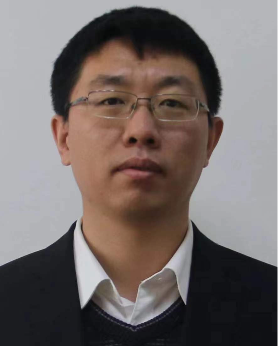
Prof. Yang Cong
South China University of Technology, China
Biography: Dr. Yang Cong is a National Distinguished Young Scholar and Ph.D. supervisor. His primary research areas include robot vision, machine learning, medical image analysis, big data processing, and robot servo control. He previously worked at the Shenyang Institute of Automation, Chinese Academy of Sciences.
Dr. Cong serves as a member of the Board of the China Society of Image and Graphics and as the Deputy Chair of the Youth Working Committee of the Chinese Association of Automation. He has led multiple major projects, including the National Key R&D Program of China, the Instrument Special Program of the National Natural Science Foundation, and projects under the Distinguished Young Scholar (Jieqing), Excellent Young Scholar (Youqing), key programs, and Chinese Academy of Sciences research initiatives.
His honors include the First Prize of Natural Science of Liaoning Province, First Prize of Natural Science Award from the Chinese Association of Automation, Young Scientist Award from the Chinese Association of Automation, Liaoning Province Youth Science and Technology Award, Special Prize for Natural Science Achievement of Liaoning Province, and Outstanding Member Award from the Youth Innovation Promotion Association of the Chinese Academy of Sciences.
Dr. Cong has published over 80 papers in domestic and international journals and conferences and co-authored a monograph published by Springer. He currently serves on the editorial boards of reputable journals such as IEEE Transactions and Acta Automatica Sinica.
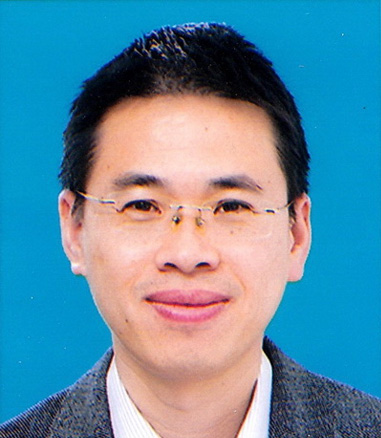
Prof. Junzhi Yu
Peking University, China
Biography: Dr. Junzhi Yu earned his Bachelor’s degree in Safety Engineering from North China Institute of Technology (now North University of China) in 1998, followed by a Master’s degree in 2001. He formerly served as a Researcher and Ph.D. supervisor at the State Key Laboratory of Management and Control for Complex Systems, Institute of Automation, Chinese Academy of Sciences, and was a Humboldt Research Fellow.
Currently, Dr. Yu is a Boya Distinguished Professor at the Department of Advanced Manufacturing and Robotics, School of Engineering, Peking University. He is an IEEE Fellow and was awarded the National Science Fund for Distinguished Young Scholars in 2017.
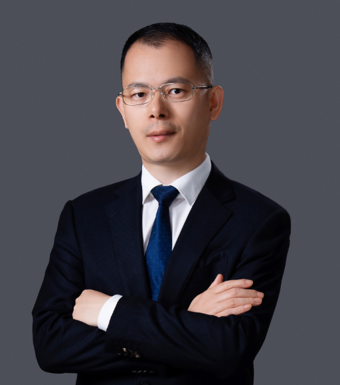
Prof. Hongde Qin
Harbin Engineering University, China
Biography: Professor Hongde Qin is a doctoral supervisor at Harbin Engineering University and a recipient of the National Science Fund for Distinguished Young Scholars. He serves as the Chief Scientist of the National Key Laboratory of Intelligent Marine Vehicles Technology and the chief scientist for a National Key R&D Program project. He led the development of the “Xinghai” series of autonomous underwater vehicles (AUVs).
Currently, Professor Qin is an expert member of the overall group for the Ministry of Science and Technology’s Key Special Program on Intelligent Robots, Secretary-General of the Intelligent Robotics Committee of the China Computer Federation, a council member of the Deep Sea Technology Branch of the China Oceanographic Society, Deputy Head of the Artificial Intelligence Group of the Ship Mechanics Committee of the China Society of Naval Architects and Marine Engineers, and an editorial board member of several international journals.
His research mainly focuses on underwater unmanned vehicles and unmanned surface vessels technology. He has received seven provincial, ministerial, and national industry association science and technology awards, published over 100 papers in journals and conferences, and holds more than 90 granted invention patents.

Prof. Benliang Zhu
South China University of Technology, China
Biography: Ph.D. in Engineering, Professor at the School of Mechanical and Automotive Engineering, South China University of Technology, and doctoral supervisor. Selected for the National Youth Talent Program, Senior Humboldt Research Fellow (Germany), Guangdong Provincial Distinguished Young Scholar, Special Foreign Research Fellow of the Japan Society for the Promotion of Science (JSPS), Pearl River Science and Technology New Star of Guangzhou, Xiaomi Young Scholar, and “Xinghua Scholar” Elite Scholar at South China University of Technology.
Currently, he serves as the Deputy Director of the Guangdong Key Laboratory of Precision Equipment and Manufacturing Technology and Deputy Director of the Precision Equipment and Intelligent Robotics Research Center at South China University of Technology.
His research primarily focuses on compliant mechanisms, robotics, and precision equipment. He has published over 80 SCI-indexed papers in leading international journals in mechanical engineering such as Nature Communications, IEEE/ASME Transactions on Mechatronics, and Mechanism and Machine Theory. His work has been cited over 2,700 times on Google Scholar. He has authored one English monograph on the topology optimization of compliant mechanisms published by Springer and holds 10 invention patents granted both domestically and internationally.
He has led more than 20 research projects and his achievements include the First Prize of the Natural Science Award of the Ministry of Education for Higher Education Institutions (2022, ranked 2nd) and the First Prize of Technical Invention of Guangdong Province (2018, ranked 11th). He has been frequently invited to deliver plenary or keynote speeches at major national and international academic conferences. He served as session chair for ICIRA (2019) and IEEE-MARSS (2019), guest editor for the international journal Biomimetics (Impact Factor 4.5), and is a Young Editorial Board member of the journal "Robotics".
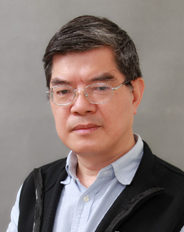
Prof. Yisheng Guan
Guangdong University of Technology, China
Biography: Director of the Institute of Intelligent Manufacturing and Robotics, Long engaged in research and development of robotics and automation systems. Early in his career, he independently or as a key contributor participated in the development of industrial robots/manipulators (Harbin Institute of Technology), CNC machine tools (Second Academy of the Aerospace Ministry), robotic multi-fingered dexterous hands, and integrated robotic arm-hand systems (Beihang University); multi-robot systems (Hong Kong University of Science and Technology), robotic multi-fingered teleoperation systems (University of Alberta, Canada), five-axis ion beam mirror polishing robot, tracked-wheel mobile mine-clearing robot, mobile artillery firing robot with multi-degree-of-freedom manipulator arm (ESI Robotics and Automation, Canada), and humanoid robots (National Institute of Advanced Industrial Science and Technology (AIST), Japan).
Since returning to China in 2007, he has focused on research and development in biomimetic robots and intelligent robotics. He has led numerous vertical projects including National Natural Science Foundation projects, National 863 Program projects, National Fund-Guangdong Province joint key projects, National International Science and Technology Cooperation projects, Guangdong Provincial Natural Science Foundation key/major foundational cultivation projects, Guangdong Provincial major science and technology projects, Guangdong-Hong Kong Science and Technology Cooperation projects, as well as over 30 horizontal projects commissioned by renowned enterprises and institutions such as Huawei, Nokia, Guangzhou CNC, SIASUN Robot & Automation, State Grid, China Southern Power Grid, GAC Research Institute, South China University of Technology, and Xiamen University.
He has applied for about 100 invention patents and published nearly 300 SCI/EI-indexed papers in prestigious domestic and international journals and important conferences, along with authoring and translating a book and compiling a textbook.
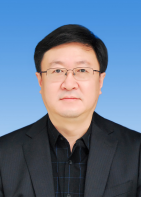
Prof. Chunlin Dong
Guangzhou Maritime University, China
Biography: From 2006 to 2015, worked at the Beijing Aviation Manufacturing Engineering Research Institute of AVIC, and from 2015 to 2023 at the China-Ukraine Barton Welding Research Institute of the Guangdong Academy of Sciences, serving as deputy director, director, and president of the China-Ukraine Barton Welding Research Institute. Currently, a faculty member at the School of Intelligent Manufacturing, Guangzhou Maritime University, and head of the Intelligent Welding Manufacturing and Equipment team.
He concurrently serves as a committee member of the Welding Society of the Chinese Mechanical Engineering Society, a committee member of the Laser Processing Professional Committee of the Chinese Optical Society, vice chairman of the Welding Branch of Guangdong Mechanical Engineering Society, executive vice president of the Guangdong Robot Association, advisor to the Guangdong Welding Industry Association, and a director of the Guangzhou Association of Returned Overseas Scholars.
As project leader, from 2006 to 2015, he undertook key projects of the National Science and Technology Support Plan, the 973 Program, and projects under the Ministry of Industry and Information Technology’s 04 Special Project. From 2015 to 2022, as principal investigator, he led national key R&D programs and Guangdong provincial key industry research plans. In technical R&D and industrialization, he emphasizes theory, experimentation, and technological innovation.
In the past five years, he has been granted 1 US invention patent and 16 Chinese invention patents, published over 60 academic papers in core technical journals, including more than 20 high-level papers, and supervised 15 master’s and 2 doctoral students. The project achievements have been applied to products such as aircraft fuel tanks, aluminum alloy ship hull panels, and new energy vehicle battery trays, generating significant social and economic benefits.
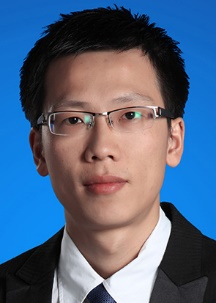
Prof. Xuefeng Zhou
Institute of Intelligent Manufacturing, GDAS, China
Biography: Deputy Director of the Institute of Intelligent Manufacturing, GDAS and Deputy Director of the National and Local Joint Engineering Center for Intelligent Manufacturing Equipment and Technology, Responsible for science and technology planning, construction of research platforms, management of scientific research projects and research outcomes, international cooperation and foreign affairs, popular science education and research study programs, journal editorial work, and standardization activities. Also assists in managing high-level talent affairs. Directly oversees the robotics technology team, advanced laser additive manufacturing technology innovation team, integrated intelligence innovation team, reliability and equipment technology center, Guangdong Province Quality Supervision and Testing Station for Electromechanical Products (Reliability) in Guangzhou, and the Science and Technology Business Department.

